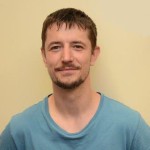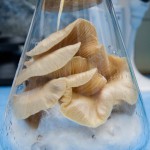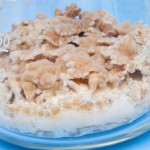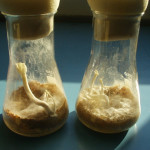Laboratory of Environmental Biotechnology
Head of the Laboratory:
prof. RNDr. Tomas Cajthaml, DSc..
Phone: +420 241 062 498
Fax: +420 241 062 384
Email: cajthaml@biomed.cas.cz
Mgr. Kamila Šrédlová, Ph.D.
| prof. RNDr. Tomáš Cajthaml, DSc. | Head of the Laboratory |
| RNDr. Čeněk Novotný, CSc. | Senior Scientist |
| RNDr. Martin Ezechiáš, Ph.D. | Scientist |
| RNDr. Zdena Škrob, Ph.D. | Scientist |
| PharmDr. Klára Michalíková, Ph.D. | Associated scientist |
| RNDr. Jaroslav Semerád, Ph.D. | Postdoctoral fellow |
| Mgr. Michaela Helusová | PhD student |
| Mgr. Alena Grasserová | PhD student |
| RNDr. Jana Boháčková | Research assistant |
| Mgr. Tereza Černá, Ph.D. | Research assistant |
| Ing. Alena Filipová | Research assistant |
| Mgr. Tereza Mullerová | Research assistant |
| Mgr. Kateřina Němcová | Research assistant |
| Bc. Markéta Poslušná | Research assistant |
| Bc. Eliška Pospíchalová | Research assistant |
| Mgr. Kamila Šrédlová, Ph.D. | Research assistant |
| Mgr. Ivan Titov | Research assistant |
| Mgr. Jana Zlotá | Research assistant |
Laboratory of environmental biotechnology is focused on research topics in the area of decomposition of organic pollutants in the environment using microorganisms. The research includes basic science approaches including studies of microbial mechanisms enabling the degradation organic pollutants. However, the processes are also studied from the application perspective in order to utilize the decomposition processes to clean up polluted localities using specific microorganisms.
The research is prevalently interdisciplinary and beside microbiology other main scientific fields are biochemistry, toxicology, environmental and analytical chemistry and molecular biology.
The persistent organic pollutants belong among the main studied contaminants (polychlorinated biphenyls, polycyclic aromatic hydrocarbons), industrial dyes and also so called new-emerging pollutants. The last group includes pharmaceutical residues and personal care products that interfere with hormonal system of mammalians and therefore they are also called as endocrine disrupters.
The main studied microorganisms for this purpose are ligninolytic and filamentous fungi and bacteria. The most studied bioremediation technologies are mycoremediation and composting. The composting method is suitable for decontamination of solid matrices (soil, sediment sludge) and the mycoremediation technique is studied for decontamination of solid materials and also wastewaters.






